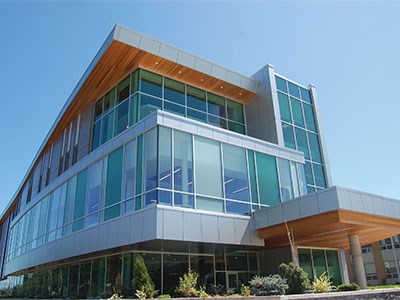A new program partnering Sault College with the Garden River First Nation is opening up doors for Aboriginal and Métis women looking to get into the trades.
In 2015, the college’s Aboriginal Apprenticeship Centre will be offering two cohorts of the heavy equipment operator program to train women for work in the construction and mining sectors.
“It’s always so exciting to me to see the women wanting to come to the trades and trying to explore this,” said Lynne Sinclair, the centre’s project coordinator. “We’re so traditionally underrepresented in the construction sector; however, things are changing.”
Under the eligibility requirements, women must be unemployed or underemployed, they have to be at least 18 years old, and preference will be given to women with a class G licence. Ten students will be accepted into each of the April and June cohorts.
The stereotypical image of a burly, macho construction worker is now giving way to a more diverse picture, where women can find a place alongside men on job sites, Sinclair said.
“You don’t always need to be really tough and masculine to work in this trade anymore,” she said. “Everything is computerized now — even heavy equipment is now computerized — so it takes some fine motor skills, which women excel at.”
Students will spend the first four to five weeks training in health and safety procedures, in addition to mining simulation training and employment readiness. That will be followed by four weeks of training on a loader and excavator, and then students should be eligible to test for their DZ licence. The program wraps up with an eight-week placement on a job site of the students’ choosing.
Garden River First Nation is providing classroom space, equipment and aggregate pits for the students’ training.
“We’re going to recruit largely from the Algoma district and First Nations and Métis communities in the Algoma district, but we’re also looking at recruiting from some of the Northern communities as well,” Sinclair said. “There are going to be a lot of opportunities up there in the coming years, so training people and helping people to get employed in those areas is very important as well.”
Although the program is geared toward women of Aboriginal and Métis descent, it is not a requirement for eligibility, she added.
Unique to this program is a built-in socioeconomic component that addresses economic security and violence against women, Sinclair said. Because the program is funded through the Ontario Women’s Directorate, there is a strong will to ensure the women are educated on the signs of domestic violence and how economic security can help women achieve independence.
“With trades, that’s not something that you really look at putting into a program, but we’re working specifically with women, so I’m excited to be working with a program with the Ontario Women’s Directorate,” Sinclair said.
Part of the course will teach women about strategies for dealing with gender-related issues that may arise on the worksite, and women guest speakers working in the trades will share their experiences with the students.
“Given everything in the news lately about Aboriginal women and vulnerability, it’s a really good opportunity to increase their economic security to try and help with empowering women,” Sinclair said.
The Aboriginal Apprenticeship Centre has run a number of trades-based programs in the past, she noted, and typically the centre tries to focus on trades that are in demand.
So even if the heavy equipment operator program for women is successful, this may be the only time it’s offered as it will tailor its programming to the labour market.




